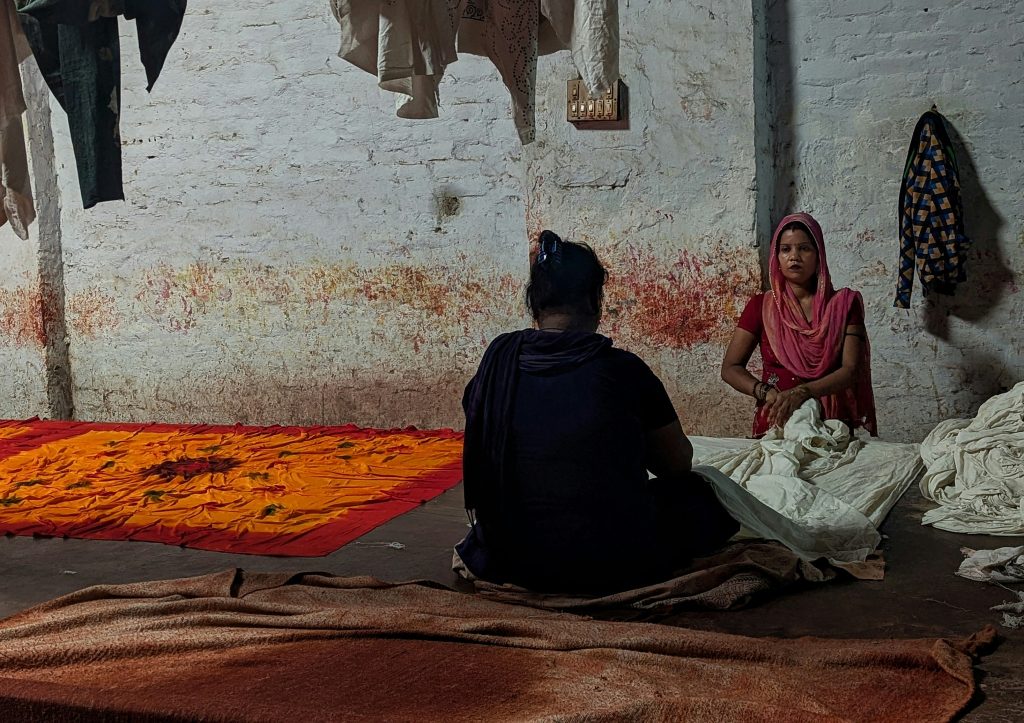The Inspiring Journey of Christopher Reeve: From Superman to Advocacy
Christopher Reeve, the iconic actor who captivated audiences as Clark Kent and his alter ego Superman in the 1970s and 1980s, is the subject of a powerful new documentary titled ‘Super/Man: The Christopher Reeve Story.’ This film chronicles not only Reeve’s rise to fame but also his remarkable journey following a life-altering accident that left him paralyzed.
Reeve’s portrayal of Superman became a defining role of his career, earning him a place in cinematic history. However, his life took a dramatic turn in 1995 when he suffered a near-fatal horse-riding accident that resulted in a spinal cord injury. This incident could have marked the end of his career and ambitions, yet it instead catalyzed a profound transformation in his life.
The documentary, directed by Ian Bonhôte and Peter Ettedgui, presents an intimate look at Reeve’s life before and after the accident. It showcases his evolution from a rising star to a passionate advocate for spinal cord research and disability rights. The trailer for ‘Super/Man’ reveals poignant moments that highlight Reeve’s resilience and determination to raise awareness about the challenges faced by those with disabilities.
Despite the physical limitations imposed by his injury, Reeve refused to be defined by his condition. Instead, he became a beacon of hope and inspiration for many, using his celebrity status to drive change and promote advancements in medical research. The documentary delves deep into his advocacy work, illustrating how he leveraged his experience and platform to fight for the rights of individuals with disabilities.
In addition to his advocacy, Reeve’s personal story is one of immense courage. He faced the challenges of his new reality with grace and humor, embodying the very spirit of Superman that he had portrayed on screen. The film captures his unwavering spirit and determination, reminding viewers that true heroism transcends physical abilities.
‘Super/Man’ not only celebrates Reeve’s legacy as an actor but also honors his incredible contributions to society. It serves as a reminder of the strength of the human spirit, the importance of perseverance, and the impact one individual can have on the world. As audiences prepare to watch this heartfelt documentary, they are invited to reflect on the broader themes of resilience, advocacy, and the ongoing fight for equality in the face of adversity.
This documentary is not just a tribute to a beloved actor; it is a call to action for viewers to consider the experiences of those living with disabilities. Reeve’s story is a testament to the power of hope and the importance of advocacy in creating a more inclusive society. Through his life, he taught us that being a hero extends beyond the screen and into our communities, inspiring others to embrace their own journeys with courage and compassion.
Tags: Advocacy, Christopher Reeve, Superman
Gabby Giffords: A Voice of Resilience and Hope at the DNC
In a poignant moment at the Democratic National Convention, former Congresswoman Gabby Giffords took to the stage to share her powerful message of resilience and hope. Giffords, who served in the U.S. House of Representatives until 2012, has become a symbol of strength following an assassination attempt that left her with a severe brain injury. Her journey from tragedy to advocacy has inspired many and continues to shine a light on the issues of gun violence and public safety.
As she honored President Joe Biden, whom she described as ‘a decent man,’ Giffords emphasized the importance of unity in the face of adversity. She urged Americans to come together to address the growing threats against the nation, highlighting that the fight for safety and justice is a collective responsibility. Her presence at the convention not only reminded attendees of her personal journey but also underscored the ongoing struggle against gun violence that affects countless families across the country.
Joining her on stage was her husband, Senator Mark Kelly, who has been a steadfast supporter in her advocacy efforts. Together, they have worked tirelessly to promote policies aimed at reducing gun violence and enhancing public safety. Their shared commitment to these causes resonates deeply with many, particularly those who have been directly impacted by gun-related tragedies.
The emotional weight of the event was palpable as family members and survivors of gun violence shared their own stories of loss and hope, creating a powerful narrative that echoed throughout the convention. These testimonies served as a call to action, reminding the audience of the urgent need for change and reform in gun laws.
As Giffords spoke, the audience listened intently, captivated by her courage and determination. Her journey has not been easy, but she has emerged as a leader in the fight for a safer America. By using her voice, she continues to advocate for those who can no longer speak for themselves, ensuring that their stories are not forgotten.
The Democratic National Convention provided a platform for Giffords and others to highlight the critical issues facing the nation today. With an unwavering spirit, Giffords reminds us that hope can prevail even in the darkest of times. Her message is clear: we must stand together to create a future free from fear and violence.
As the convention unfolded, it became evident that Giffords’ story is not just her own but a reflection of the resilience found within communities across the nation. It serves as a reminder that change is possible when individuals come together with a shared purpose.
In a time when divisiveness seems prevalent, Giffords’ message of unity and hope resonates more than ever. Her journey is a testament to the strength of the human spirit and the power of advocacy in effecting change. As the nation looks to the future, Giffords stands as an example of what can be achieved through perseverance and collective action.
Tags: Advocacy, Gabby Giffords, Gun Violence
A Father’s Pride: Governor Tim Walz Opens Up About His Son’s Journey with NVLD
In a heartfelt moment that resonated with many, Minnesota Governor Tim Walz publicly shared the challenges and triumphs faced by his son, Gus, who has been diagnosed with a non-verbal learning disorder (NVLD), ADHD, and anxiety disorder. This revelation has sparked a broader conversation about neurodiversity and the importance of understanding different learning abilities in our society.
With nearly 3 million children and adolescents in North America affected by NVLD, Gus’s story sheds light on the struggles that many families face. NVLD can significantly impact a child’s spatial-visual skills, but it does not diminish their potential. Governor Walz emphasized that while these challenges are substantial, they do not define who Gus is. The support and love within their family have been pivotal in navigating these complexities.
During a recent speech at the Democratic National Convention, Governor Walz drew parallels between the election and a football game, promising to fight for progress ‘one yard at a time.’ This metaphor resonated not only in the political arena but also in the personal journey he shares with his son. The pride and love that Walz has for Gus were palpable, as he highlighted how their relationship has been strengthened through these shared experiences.
The conversation around neurodiversity is more important now than ever. It invites a deeper understanding of how differently-abled individuals navigate the world. As families like the Walzes advocate for awareness, they simultaneously cultivate a sense of hope for others facing similar challenges. Gus, who sat in the front row during his father’s significant moment, became a symbol of resilience, inspiring many with his courage and determination.
The significance of these discussions is further amplified by the emotional connection that parents have with their children facing such hurdles. Tim Walz’s narrative is not just a political statement; it is a profound reminder of the human experience that transcends politics. It reinforces the notion that behind every public figure lies a family story filled with love, support, and understanding.
Ultimately, as society begins to embrace neurodiversity, it becomes imperative to champion awareness and create inclusive environments for all children. Governor Walz’s willingness to share his family’s journey is a testament to the strength found in vulnerability, encouraging others to speak out and seek support.
As we continue to discuss the importance of embracing differences, let us also acknowledge the need for systemic changes that promote inclusion and accessibility for those with learning disabilities. The journey towards understanding and acceptance is ongoing, but with advocates like Tim Walz, there is hope for a more inclusive future for all children, regardless of their learning abilities.
Tags: Advocacy, family support, Gus Walz, Learning Disabilities, Neurodiversity, non-verbal learning disorder, Tim Walz
Governor’s Openness Sparks Hope for Disabled Americans
In a heartfelt discussion, Minnesota Governor Tim Walz and his wife, Gwen, shed light on the challenges faced by their son, Gus, who lives with a nonverbal learning disorder and ADHD. This candid conversation not only highlights the personal struggles of the Walz family but also aims to bring attention to the broader issues faced by millions of Americans with learning disabilities.
Governor Walz expressed that the journey with Gus has been an eye-opener, revealing both the obstacles and the triumphs that come with parenting a child with special needs. The couple emphasized the importance of understanding and empathy in society, advocating for greater awareness and support for families similarly affected.
Their openness has resonated with many disabled individuals and their families, who often feel isolated in their struggles. By sharing their story, the Walzes hope to encourage others to speak out about their experiences, fostering a sense of community and support.
Learning disabilities such as ADHD and nonverbal learning disorders are often misunderstood, leading to stigma and a lack of resources for affected individuals. The Walzes’ story serves as a reminder that these challenges are not just personal battles but societal issues that need collective attention.
As discussions surrounding mental health and disabilities gain momentum, the Walz family stands as advocates for change, pushing for enhanced educational resources and support systems that cater to the diverse needs of children with learning disabilities. Their story is a call to action for policymakers and educators alike, urging them to prioritize inclusion and accessibility in schools and communities.
In conclusion, the Walz family’s willingness to share their experiences not only helps to humanize the struggles of those living with learning disabilities but also paves the way for a more inclusive future. Their journey is a testament to the power of vulnerability and the importance of community in overcoming adversity.
Tags: ADHD, Advocacy, Gus Walz, Learning Disabilities
A Voice for the Voiceless: Hadley Duvall’s Inspiring Message at the DNC
In a powerful display of resilience and strength, Hadley Duvall took the stage at the Democratic National Convention in Chicago, captivating the audience with her personal story of survival and advocacy. This year’s convention marked a pivotal moment, as speakers shared their experiences surrounding the complex issues of pregnancy, miscarriage, and abortion in the aftermath of the Roe v. Wade decision.
Hadley, who faced unimaginable challenges at a tender age, became a beacon of hope for many. At just 12 years old, she endured sexual abuse that resulted in an unplanned pregnancy. Instead of being silenced by her trauma, she transformed her pain into a platform for change, advocating for reproductive rights and the importance of women’s autonomy over their bodies. Duvall’s journey from victim to advocate is nothing short of inspiring.
Her presence at the DNC was not only a personal triumph but also a collective call to action for women across the nation. As she stood before thousands, her voice resonated with the struggles of many who have faced similar circumstances. “What is so beautiful about a child having to carry her rapist’s baby?” she questioned, challenging the narratives often imposed by political figures who romanticize unwanted pregnancies.
Duvall’s story was complemented by other speakers who also shared their encounters with the harsh realities of reproductive health. Together, they highlighted the urgent need for policy changes to protect women’s rights and ensure access to safe healthcare. The stories of Amanda Zurawski and Kaitlyn Joshua, who also graced the stage, further emphasized the necessity of empathy and understanding in the political discourse surrounding these issues.
As the first Democratic National Convention held post-Roe, this gathering served as a significant milestone in the fight for reproductive rights. Hadley Duvall, along with her fellow speakers, brought crucial attention to the challenges faced by women in America, igniting a conversation about the legislative changes needed to safeguard their rights.
This year’s convention was not merely an event; it was a movement, a rallying cry for those who believe in the power of choice. Hadley’s poignant narrative reminds us that behind every statistic is a human story, and it is these stories that fuel the push for change.
As we look to the future, the message from Chicago is clear: the fight for reproductive rights is far from over, and voices like Hadley Duvall’s are essential in shaping the conversations that will lead to meaningful progress. Her courage to share her story has sparked hope and solidarity among those who have been silenced for too long, reminding us all of the importance of advocacy and the impact of sharing our truths.
Tags: Advocacy, Hadley Duvall, Reproductive Rights
New Hope for Angelman Syndrome: Promising Treatment and Advocacy Efforts
Angelman syndrome, a rare neurogenetic disorder affecting thousands of individuals worldwide, has recently gained significant attention due to promising developments in treatment and advocacy. A Phase 1/2 clinical trial has revealed that ION582, a novel treatment for Angelman syndrome, was well tolerated and demonstrated improvements in patients’ symptoms. This breakthrough offers hope to families impacted by this condition, which is characterized by developmental delays, speech impairments, and distinctive behavioral traits.
As awareness of Angelman syndrome grows, so too does the importance of advocacy and support for affected individuals and their families. Recent efforts by various advocates, including well-known figures, highlight the challenges faced by those living with the disorder. For instance, one prominent advocate has shared personal insights about parenting a child with Angelman syndrome, shedding light on the emotional and practical challenges that families navigate daily.
The newly established foundation aims to provide comprehensive support for individuals with intellectual disabilities, particularly those affected by Angelman syndrome. The foundation’s mission focuses on advocacy, education, and the development of innovative programs designed to empower families and enhance the quality of life for individuals living with this condition.
The combination of promising treatment options and dedicated advocacy efforts signifies a pivotal moment for the Angelman syndrome community. Families are increasingly hopeful as they witness advancements in both medical research and support systems. The commitment to raising awareness about Angelman syndrome is crucial, not just for those directly affected, but also for society as a whole, which can benefit from a deeper understanding of the challenges faced by individuals with intellectual disabilities.
In conclusion, the ongoing research into treatments like ION582 and the formation of supportive advocacy organizations represent a dual approach to addressing the needs of the Angelman syndrome community. As these initiatives gain momentum, they promise to create a more inclusive and supportive environment for individuals and families dealing with the realities of Angelman syndrome. The journey towards improved treatment and quality of life continues, fueled by hope, determination, and a collective effort to make a difference.
Tags: Advocacy, Angelman Syndrome, Clinical Trials, Intellectual Disability, ION582






